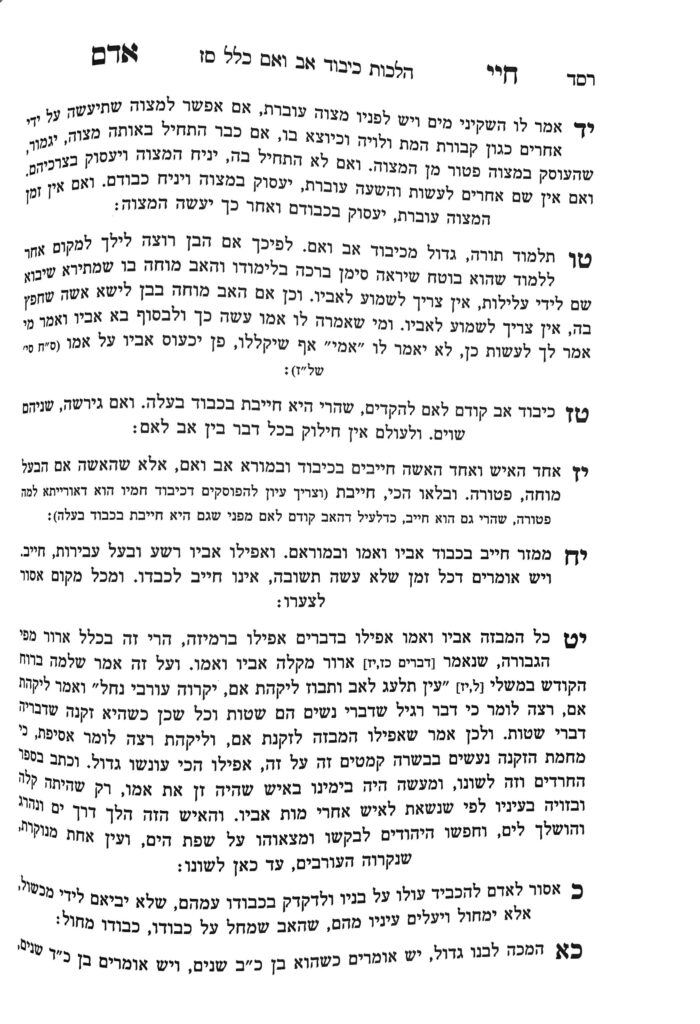We are beginning siman 15, where the Chayei Adam discusses situations in which a parent wishes to give their child direction on how to perform a mitzvah, but the child wishes to perform the mitzvah in a different manner. The Chayei Adam will give some examples.
The Chayei Adam begins with the mitzvah of limud hatorah. Logic would dictate that a child should listen to their parents, and, if the parent’s direction is a viable option, they should certainly listen. However, if the child feels that they will perform the mitzvah more optimally in another way, they may choose to do so. Therefore, the Chayei Adam writes that if a child wishes to travel for the purpose of learning, and feels that they will be more successful in learning if they travel to another place, they may do so even against their parent’s protests. The Chayei Adam adds that even if the parents have good reason to protest, such as concern for the child’s safety (e.g., the city to which he wishes to travel is known for making false accusations against the Jews), the child does not have to listen.
Similarly, the Chayei Adam writes that if the child wishes to marry a specific person, and the parents feel that he should marry someone else, the child does not need to listen to their parents. This is certainly true if the father has financial considerations in mind (i.e., that another family will expect less financial support from the father) and even true if the father only has the child’s best intentions in mind.
Practically, a child should realize that their parents understand more about the real world than the child, and should take their parent’s concerns seriously. The child should also consider the impact on the relationship with their parents. However, the point of the Chayei Adam is that there is a limit to the authority of the parent over the child. The child has the mitzvah to respect and serve the parent, but the parent does not have control over the child to direct exactly how they should live their lives.
On a similar token, the Chayei Adam will write later that a parent should not overburden their child, because the nature of the child is to rebel, and the parent is thereby causing the child to sin when they do not listen to the parent.
Summary
The child has the mitzvah to respect and serve the parent, but the parent does not have control over the child. Therefore, when there are differing opinions between parent and child regarding how to perform a mitzvah, such as limud hatorah or marriage, the child does not have to listen to their parents



